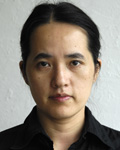| 
The parents of Hugjiltu, who was executed after being wrongfully convicted of rape and murder around two decades ago, will receive more than 2 million yuan ($323,000) in state compensation, the Higher People's Court of Inner Mongolia Autonomous Region ruled on December 30, 2014.
The amount of compensation awarded was determined according to the State Compensation Law, which came into force on January 1, 1995. The law entitles citizens to the right of applying for state compensation if they are unduly harmed through the actions of the government, which include wrongful detention and verdicts.
On April 9, 1996, a woman was strangled to death in Hohhot, capital of Inner Mongolia. The 18-year-old Hugjiltu, who passed by and called the police, was identified as the murderer. He was sentenced to death and executed two months after the murder occurred, despite the existence of doubts concerning the evidence.
Nine years after the execution took place, Zhao Zhihong, who had been arrested on suspicion of carrying out a series of rapes and murders, confessed to the murder.
On November 19, 2014, the Higher People's Court of Inner Mongolia decided to retry the case. About a month later, the court overturned Hugjiltu's previous conviction posthumously and ruled he was not guilty of rape and murder.
Since the 18th National Congress of the Communist Party of China (CPC) in 2012, 23 major wrongful convictions have been overturned. This demonstrates the resolve of the country's judicial departments to correct past mistakes. Such actions also mark a significant step forward in realizing the goal of consolidating the rule of law, an objective set out at the Fourth Plenary Session of the 18th CPC Central Committee in October last year.
As a matter of fact, with regard to China's criminal justice system and its laws, provisions and adjustments have continuously been made throughout the state's history to mitigate the possibility of wrongful verdicts. For example, the Criminal Procedure Law passed in 1979 prohibited the extortion of confessions by torture. The Criminal Law also identified such an act as a crime.
Furthermore, amendments to the Criminal Procedure Law in 1996 established the rule that criminal suspects should be presumed innocent. The same law was again revised in 2012, with some language being clarified and more protections being added to make illegal the practice of extorting confessions by torture. For example, the law states that the interrogation process for suspects should be recorded by a video camera and that illegal evidence should be excluded from trials.
Modern judicial concepts such as the presumption of innocence are now enshrined in the Criminal Procedure Law after two amendments made in 1996 and 2012. However, to make law is one thing and to implement it is another. In reality, many in the judiciary have not yet assimilated the idea of presuming innocence with regard to those suspected of having committed a crime for various reasons. Some worry that adhering to this principle will serve only to encourage criminal acts. Others tend to place full weight on evidence that supports a suspect's guilt, while dismissing out of hand evidence which may attest to the same suspect's innocence. As a result, suspects in cases where inadequate or flawed evidence has been presented have often been judged erroneously to be guilty.
Many of the wrongful convictions which have come to light happened as a result of the aforementioned practices. The majority were overturned under the following circumstances: First, the real perpetrator was discovered or confessed, as in Hugjiltu's case; second, the presumed victim of a murder appeared to have miraculously returned to life; and third, a previously convicted suspect was declared innocent owing to inadequate evidence in accordance with the principle of presumption of innocence.
The overturning of the verdict initially accorded to Hugjiltu and the granting of state compensation to his parents are some of the latest testaments to the transformation of the thinking now guiding judicial bodies. As the country further advocates and implements the rule of law and as judicial reform deepens, it is hoped that wrongful verdicts will be remedied and tragic cases such as Hugjiltu's will become a thing of the past.
Email us at: zhangzhiping@bjreview.com | 